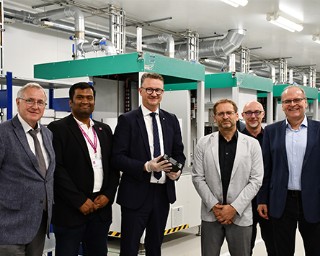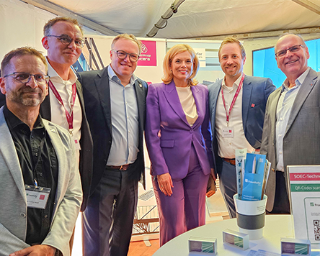
The project “BeaT – Renewing Vocational Training for the Automotive Transformation,” coordinated by Fraunhofer IKTS and implemented in collaboration with automotive thüringen e.V. and Friedrich Schiller University Jena, was presented as an exemplary initiative in the EU Commission's latest Good Practices Catalog Vol. 1.
more info







